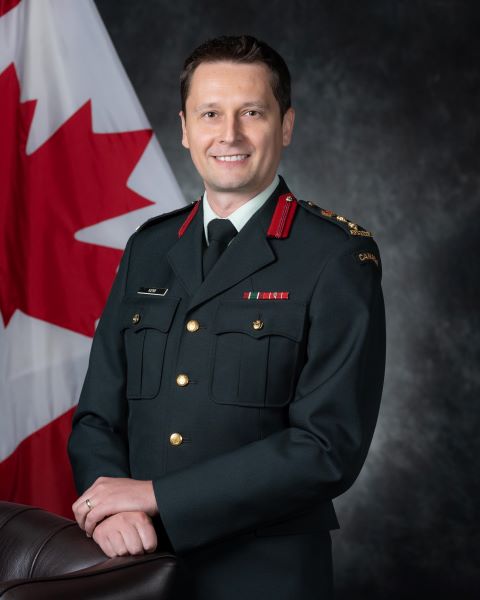Update on Military Justice System Evolution
March 31, 2022 - Defence Stories

Caption
Colonel Dylan Kerr, Director of Military Prosecutions
If you have been following the news around the Canadian Armed Forces (CAF) lately, you will probably have heard about continued and upcoming changes to the Military Justice System (MJS). An Act to Amend the National Defence Act (formerly Bill C-77) is aiming at the continued evolution of the MJS. Part of this evolution is the inclusion of the Declaration of Victims Rights (DVR) in the National Defence Act (NDA), enshrining enhanced protections for victims of service offences. More positive changes are coming, and the future implementation of the remaining provisions of Bill C-77 – shaped by the recommendations of two former Supreme Court Justices, the Honourable Morris Fish and the Honourable Louise Arbour – is aligned with the broader CAF reformation of culture and codes of professional conduct.
Many of these changes will target CAF courts martial, the prosecution of which is conducted by the Canadian Military Prosecution Service (CMPS). The CMPS is led by the Director of Military Prosecutions (DMP), Colonel Dylan Kerr. Key among the most recent changes is that civilian authorities will be given precedence with respect to the investigation and prosecution of sexual offences, at least until the pending DVR is introduced and the final report of Madame Arbour is received.
This important change responds specifically to an interim recommendation made by Madame Arbour, which was accepted by the Minister of National Defence (MND). In early November, Col Kerr and the Canadian Forces Provost Marshal (CFPM), Brigadier-General Simon Trudeau - each independent actors within the MJS - issued a joint statement accepting the recommendation and announcing its interim implementation. Both Col Kerr and BGen Trudeau have communicated that this change seeks to improve public confidence in the MJS.
During a time of significant change to the MJS, Col Kerr is enthusiastic to share his thoughtful perspective as DMP. He believes that public confidence would benefit from a better understanding of the system itself. Despite a public narrative of the MJS as an archaic system that is failing victims, he clarifies that the MJS is robust, fair and constantly evolving to meet the needs of the CAF and the Canadian public. He highlights that the substantial CAF efforts toward the implementation of the independent, expert recommendations should go a long way towards restoring public confidence in the MJS.
Col Kerr emphasizes that much work has already been done to improve the MJS. For example, he noted that the CMPS independently enshrined victims’ rights into its policy in 2018 in response to the Honourable Marie Deschamps’ report and the implementation of the Canadian Victims Bill of Rights in the criminal justice system. The pending DVR is not expected to impose significant change to CMPS practice; rather, it will adopt the rights already respected by military prosecutors into law, placing them on the same footing as in the criminal justice system. He clarifies that Defence Team members have always had the right to report allegations of sexual offences to civilian authorities, and that concurrent jurisdiction between the military and criminal justice systems over these offences has existed in Canada since 1998. He adds that most victims whose cases were already proceeding within the MJS before the DMP and the CFPM implemented Madame Arbour’s recommendation have expressed a desire for the case to continue within the MJS, rather than have the matter proceed through the civilian criminal courts.
Col Kerr believes that this is an expression of the general trust that CAF members have in the MJS – a trust that he feels is well justified. He recognizes, however, that no system is perfect, and that the MJS must continue to evolve. For example, he acknowledges that there is a gap in the MJS’s ability to prosecute the CAF’s most senior leadership, and that this can give the impression of two different tiers of justice. Now that this has been brought to light, and with the assistance of Mr. Fish’s recommendations in this regard, Col Kerr is confident that the MJS will evolve to address this problem. The Office of the Judge Advocate General (OJAG) is presently engaged in that very evolution. Moving forward, one of Col Kerr’s steadfast goals as DMP continues to be improving the transparency and public awareness of the MJS.
Determined about the need to correct misunderstandings and educate about the MJS, both within the Defence Team and beyond, Col Kerr believes that “public education is a huge and necessary part of how we move forward. No system is perfect, but CAF members and Canadians should feel confident in a MJS comprised of competent professionals who are fully capable of investigating and responding to allegations of criminal and disciplinary offences. The continuous evolution of any justice system is critical to its success, but of equal importance is ensuring to not conflate areas for improvement with systemic failure. We have an excellent system that is only getting better.”